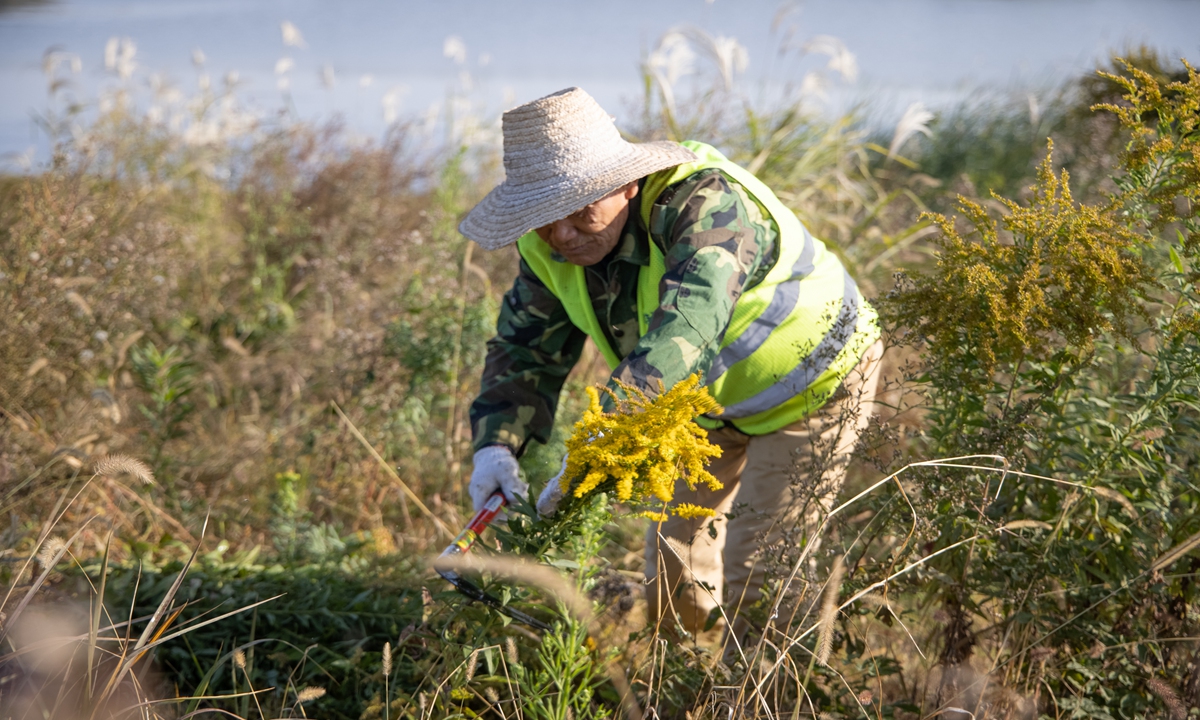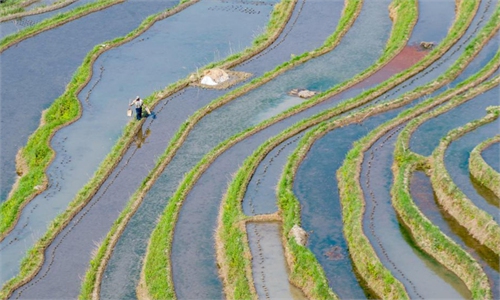China vows to crack down on invasive species including the Fushou snail and Canadian goldenrod

A man is wiping out Solidago Canadensis in Wuhan, Central China's Hubei Province. Photo: VCG
China vows to crack down on invasive species, including the Fushou snail and the Canadian goldenrod, to protect local species, the Ministry of Agriculture and Rural Affairs said on Monday.For major endangering species such as the Fushou snail and the Solidago Canadensis, also known as the Canadian goldenrod, prevention measures will be implemented. Among them, the ministry will organize the centralized termination and fumigation.
The government will also ramp up the census of invasive species in areas such as farmlands, fishery waters, forests, grasslands and wetlands to grasp the number, distribution, occurrence area, and degree of damage, the ministry noted.
The prevention of invasive species is related to national food security, biosecurity, environment protection and people's health, and iinvasive species have entered their peak growth period since the beginning of Summer, the ministry said.
Last year, the ministry organized centralized eradication activities for the Fushou snail and Mikania micrantha, known as bitter vine or American rope, in Northeast China’s Jilin Province, Central China’s Hunan and Hubei provinces, South China’s Guangdong, East China’s Jiangxi, and Southwest China’s Guizhou are also carrying on the work to prevent the growth of Canada goldenrod.
The invasive herbaceous plants are notorious for threatening the local flora. Due to the Canadian goldenrod's strong reproductive capacity and allelopathy on native plants, it can break down a stable ecosystem and poses an important threat to local ecosystems.
Over 660 invasive species have been found in China, including 71 that have threatened or caused potential threat to natural ecosystems, according to the most recent report about China's environmental conditions in 2020.
Experts said that the Canada goldenrod has become very common in some southern cities such as Shanghai, but it has appeared in provinces in the Yellow River basin in recent years, which poses a great hazard to these areas that rely heavily on crops such as rice.
The super-fertile plant will compete with native plants and crops for nutrients and water. A single weed can produce more than 20,000 seeds and it is known as an "ecological killer" since no other plants can survive where Canada goldenrods grow.
China has released four batches of lists with invasive species including water hyacinth, Spartina alterniflora and Mikania micrantha.
Global Times


